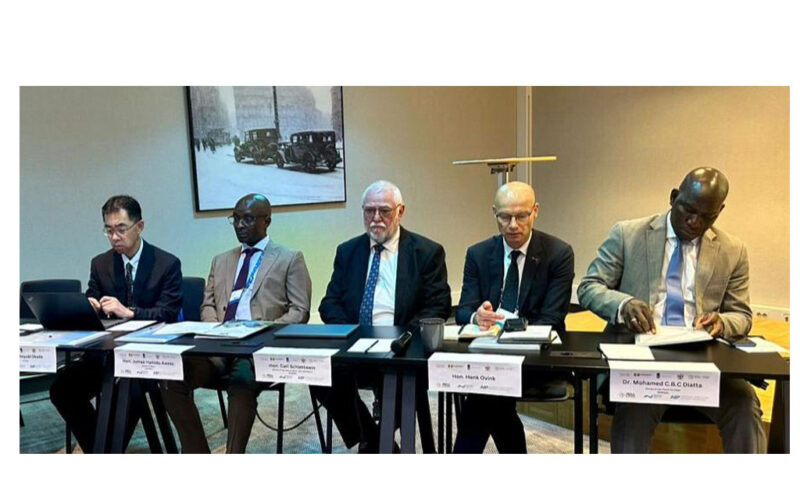Niël Terblanché
It is the ambition of Namibia to address and bring about a safe, and secure water supply for all but several severe challenges are hampering the process.
Calle Schlettwein, the Minister of Agriculture, Water and Land Reform while attending the Stockholm World Water Week at the High-Level Panel on Water Investments for Africa, said Namibia strives to provide adequate water to promote sanitation to enable development and decent urban and rural living standards for all people.
The conference in Sweden is focused on accelerating the implementation of the UN 2023 Water Action Agenda in Africa through the International High-Level Panel on Water Investment Action Plan.
According to Shlettwein the High-Level Panel has proposed that an additional US$2 billion per year can be mobilized from African government budgets through a 20 percent budget increase to water security and sanitation.
During the UN Water Conference, the AUC and High-Level Panel launched the High-Level Panel’s landmark report, ‘Africa’s Rising Investment Tide’, which defines pathways for mobilizing an additional US$30 billion per year to close the water investment gap in Africa through the Continental Africa water investment programme (AIP).
According to Schlettewein, the High-Level Panel Investment Action Plan, currently under development, will define specific actions needed to mobilize US$30 billion per year by 2030 in additional financing towards water supply security and sustainable sanitation in Africa.
“While one recognizes the need for this ambitious plan and while the outcome of the UN-Water 2023 Water Conference Action Agenda for Africa is pointing us in the rich direction, the world is facing a three-faceted crisis,” the minister said during his address to the High-Level Panel.
He said the effects of the climate crisis are now clearly visible with droughts and floods of increased intensity, out-of-season storms, intense wildfires and consequent flooding, unprecedented heat waves, glacier melting, and rising ocean levels.
“All these climatic changes are having severe effects on the water cycle making secure water supply more difficult, more expensive and often out of reach for developing countries. Shortfalls in the required funding to address climate change and related water cycle aspects remain significant. The proposal to step up domestic financial resources is pivotal but by no means the silver bullet to solving everything. We are facing a global crisis which requires global solutions, including the financial needs for the water agenda,” he said.
According to Schlettwein the current international financial architecture shows its age and is not able to deal with a globalised world.
“Currently, the debt crisis, exchange trends and the weaponising of the financial rules are fuelling inequality and making the future prospects for developing economies difficult. This is especially relevant for Africa with its youthful population where a conducive economic climate for quality economic growth and job creation is much needed to ensure prosperity for our children,” he said.
He said the world is in a political crisis with war, and political instability on the rise.
“The multilateral system of the UN is seriously skew and no longer fit for purpose with the majority of the global citizens excluded from decision making. Our own AU lacks the decisiveness to address continental political instability,” he said.
According to Schlettwein, economic and other resource scarcities increase the possibility of conflict and water scarcity is one of the main causes of probable conflict.
“The ability to solve transboundary disputes becomes less likely when political instability is on the rise. After all, it is not possible without political stability,” he said.
Schlettwein said people must, however, remain optimistic, face troubled times and create opportunities which live up to the government’s responsibility to leave behind for the youth a world, which has rid itself form the intense difficulties that were created.
“Africa has massive opportunities. They include her enormous resource wealth including water, her potential to become the bread basket of the world, her youthful population, her potential for green energy, to mention a few,” he said.
He added that governments should seize the moment and convert this potential into reality.
“We must pave the way for environmental sustainability while we industrialise, for political stability, to more evenly distribute the benefits, wealth and economic opportunities,” the minister reiterated.
He was of the opinion that the proposed action plan is the first important step towards implementing Africa’s agenda to eventually line up with the UN 2023 Water Action Agenda in Africa.




